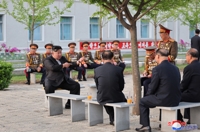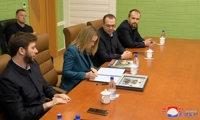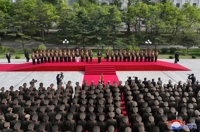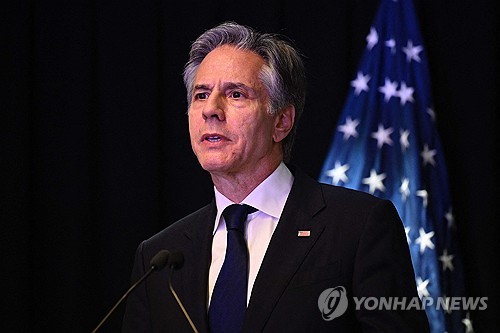(EDITORIAL from Korea Times on March 28)
New development bank
Seoul ought to show more proactive, pragmatic diplomacy
In deciding to join the China-led Asian Infrastructure Investment Bank, South Korea chose national interests over fidelity to its most important ally, the United States. That should be the norm, not the exception, in this country's diplomacy from now on.
It was rather awkward for Asia's fourth-largest economy to drag its feet in jumping into the new Asian development bank being created. Still, Seoul could make its decision only after the U.S.'s major European allies made pre-emptive moves. The government's hesitation was regrettable, if not entirely incomprehensible, because in a newly developing organization the earlier a country arrives, the larger its right to speak becomes.
Seoul could not help but study the face of Washington, which did not like Beijing's challenge to its global financial dominance. Had the Park Geun-hye administration been more self-reliant, however, it could have persuaded the U.S. government that Korea's entry into AIIB was crucial to keep China's one-sided acts in check. And the earlier, the better.
Now the government has to make up for lost time by effectively negotiating with Beijing with respect to making basic rules for the new aid agency, especially to maximize Seoul's equity stake.
It is disappointing in this regard Chinese officials are considering giving Seoul the fourth-largest share, following India and Australia.
Beijing may be right to make GDP size its criterion in allocating equity stakes, but it should take other factors into account, such as participating countries' development know-how and experience, in which Seoul should be second to none in Asia, especially in helping less-developed neighbors in the rest of the continent. Korean contractors' world-class competitiveness in building roads and ports as well as Korea's communication and transportation industries are rather above the Asian norm.
Given AIIB is the first major international agency in which Korea is participating as a founding member, Seoul needs to make the most of the opportunity to expand its financial influence in the region and beyond. That will depend on Korean officials' ability to make their Chinese counterparts improve the governance structure, and ensure transparency in enforcing lending, environmental and labor standards to international levels. All this shows why Korea should strive to have a vice presidency, or at least attract the new bank's secretariat to Seoul.
That said, it is beyond us that some officials in foreign and defense ministries say Korea's joining the China-backed bank will help them push for the deployment of the U.S. missile defense system "less burdensomely." Now that Seoul has given a present to Beijing, it can, and should, do the same to Washington, too, so goes their reasoning.
Nothing could be more preposterous. Not only are the two issues totally different in nature, but Korea should never tie up its own feet with such closed thinking. Granted, this country is situated at the meeting point of continental and oceanic forces, but that should never be the reason for Korea to feel like a shrimp between whales. It can, and should, be a dolphin that can make whales move. The Terminal High Altitude Area Defense system has yet to prove its ability and suitability to the Korean situation. Nor has even Washington "formally" delivered its intention to Seoul. Seoul must never be in a hurry.
The U.S. will continue to be Korea's most influential, but it ought to be Seoul that determines Washington's share of influence.
(END)
-
 'Queen of Tears' weaves rich tapestry of Korean contemporary art
'Queen of Tears' weaves rich tapestry of Korean contemporary art -
 Ateez member Yunho throws first pitch at MLB match between Dodgers, Mets
Ateez member Yunho throws first pitch at MLB match between Dodgers, Mets -
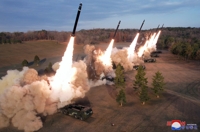 N. Korea says Kim guided simulated nuclear counterattack drills for 1st time
N. Korea says Kim guided simulated nuclear counterattack drills for 1st time -
 N. Korea calls envisioned U.S. aid to Ukraine 'hallucinogen'
N. Korea calls envisioned U.S. aid to Ukraine 'hallucinogen' -
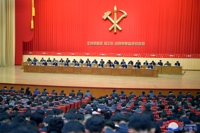 N. Korea calls on party propaganda officials to work harder
N. Korea calls on party propaganda officials to work harder
-
 'Queen of Tears' weaves rich tapestry of Korean contemporary art
'Queen of Tears' weaves rich tapestry of Korean contemporary art -
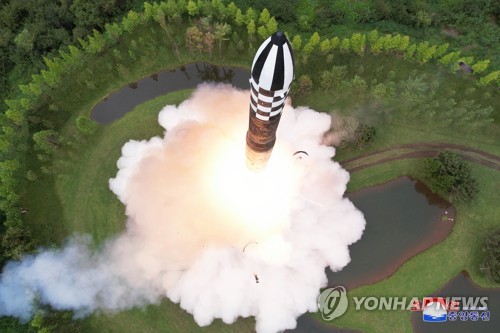 Experts see possibility of N.K. conducting nuclear test before U.S. presidential vote
Experts see possibility of N.K. conducting nuclear test before U.S. presidential vote -
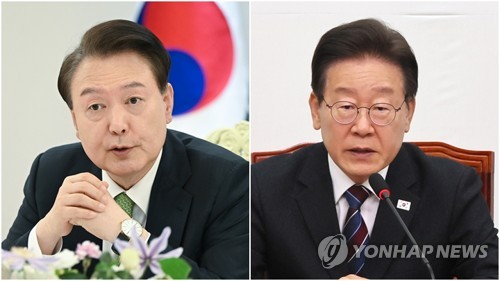 Details of meeting between Yoon, opposition leader undecided: presidential office
Details of meeting between Yoon, opposition leader undecided: presidential office -
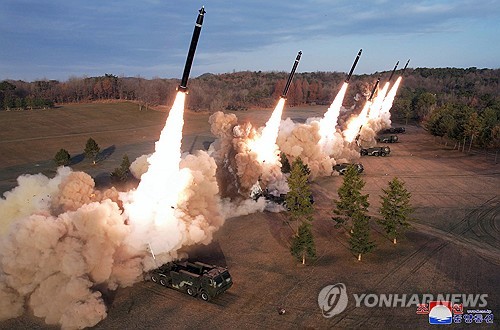 N. Korea says Kim guided simulated nuclear counterattack drills for 1st time
N. Korea says Kim guided simulated nuclear counterattack drills for 1st time -
 Looming weekly closure of major hospitals feared to worsen medical service crisis
Looming weekly closure of major hospitals feared to worsen medical service crisis
-
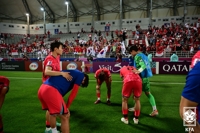 S. Korea eliminated in Olympic football qualifiers as poor defense, undisciplined play prove costly
S. Korea eliminated in Olympic football qualifiers as poor defense, undisciplined play prove costly -
 Indonesia coach left with mixed feelings after eliminating native S. Korea in Olympic football qualifiers
Indonesia coach left with mixed feelings after eliminating native S. Korea in Olympic football qualifiers -
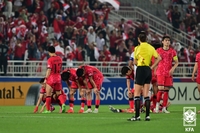 (LEAD) 10-man S. Korea lose to Indonesia to miss out on Paris Olympic football qualification
(LEAD) 10-man S. Korea lose to Indonesia to miss out on Paris Olympic football qualification -
 ADOR CEO calls conflict with Hybe 'worst experience of my life'
ADOR CEO calls conflict with Hybe 'worst experience of my life' -
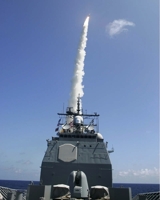 S. Korea to acquire SM-3 shipborne missiles by 2030
S. Korea to acquire SM-3 shipborne missiles by 2030















